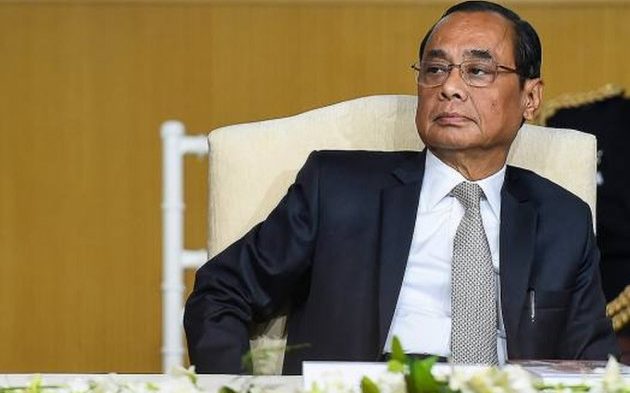Open letter by 259 women to Supreme Court judges seeks impartial inquiry by “credible individuals” on sexual harassment charges against CJI Ranjan Gogoi
In an open letter to the judges of the Supreme Court of India, 259 women have sought a “fair and impartial” inquiry into the allegations of sexual harassment against Chief Justice of India, Ranjan Gogoi, in accordance with the Sexual Harassment of Women at Workplace (Prevention, Prohibition, and Redressal) Act 2013.
The signatories have demanded an inquiry by “credible individuals” within a fixed time of 90 days. They have also demanded that the CJI refrain from doing his official duties till the completion of the inquiry.
“It is these measures which will uphold the dignity and independence of the Judiciary and more particularly, restore the faith of all women, indeed all citizens of the country, in the Judiciary,” the signatories mentioned in the letter.
In the letter, the signatories – lawyers, scholars and members of women’s groups and civil society – said that they were “shocked at reading the contents of the complaint of sexual harassment and criminal intimidation” suffered by a former Supreme Court employee.
The letter says that “equally worrisome” was the CJI’s response. CJI Ranjan Gogoi had constituted a special bench along with two other judges to hear the matter “of great public importance touching upon the independence of judiciary”. “In short, he constituted a Bench to hear his own case!” the signatories observed in the letter.
“We are both shocked and saddened that the Chief Justice of India as well as the Special Bench have responded as most men, in public office or in positions of authority and power do, when accused of sexual misconduct,” the letter, published in The Leaflet, observes.
“Denial of the allegations, maligning the complainant, citing past histories, imputing ulterior motives to the complainant are familiar and regular devices deployed by accused men. Equally common is the undertaking of vindictive measures including administrative harassment and suits of defamation against complainants,” they said.
The signatories added in the letter that not only did the CJI and the apex court not set an example by their behaviour, but “they appear to have moved a step ahead to delegitimize women’s complaints of sexual harassment – they have declared that the allegation is itself an attempt to tarnish the independence of the Judiciary.”
“In the absence of a duly conducted investigation or enquiry, we are puzzled about how the Bar Council of India, lawyers and judges are concluding with such haste that the complaint is false, baseless and motivated,” they said.
On Tuesday, Justice Bobde, the next senior most judge from Supreme Court was asked by the CJI to enquire into the allegations of sexual harassment. Justice Bobde appointed a committee with himself as chair and Justice NV Ramana and Justice Indira Banerjee as members.
The constitution of this committee “with no external member” is in complete violation of The Sexual Harassment of Women at Workplace (Prevention, Prohibition, and Redressal) Act 2013, it was observed in the letter.
The committee will hear the case on Friday, and has issued a notice asking the complainant to be present. There is no fixed time frame to conclude the proceedings, and it will follow an in-house procedure without legal representation from either side.
The letter mentions that while the CJI may not need legal representation, “this is tilting the balance against the complainant” and violates the spirit of the Vishakha judgement and The Sexual Harassment of Women at Workplace (Prevention, Prohibition, and Redressal) Act 2013.
The signatories have demanded the following:
- Constituting a special enquiry committee consisting of credible individuals to conduct a thorough enquiry at the earliest and create an atmosphere of transparency and confidence for the complainant to depose.
- The special enquiry committee should follow the norms of the IC and accordingly conduct its enquiry.
- The Chief Justice of India should refrain from transacting official duties and responsibilities until the completion of the enquiry.
- The complainant should be allowed legal assistance from lawyer of her choice.
- The enquiry should be completed within 90 days as stated in the law.


Comments are closed.